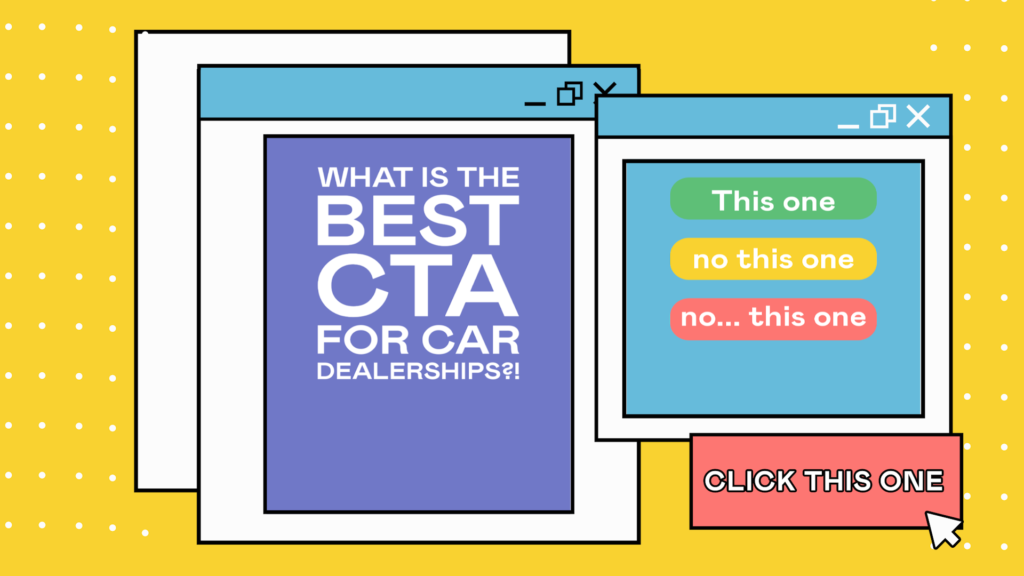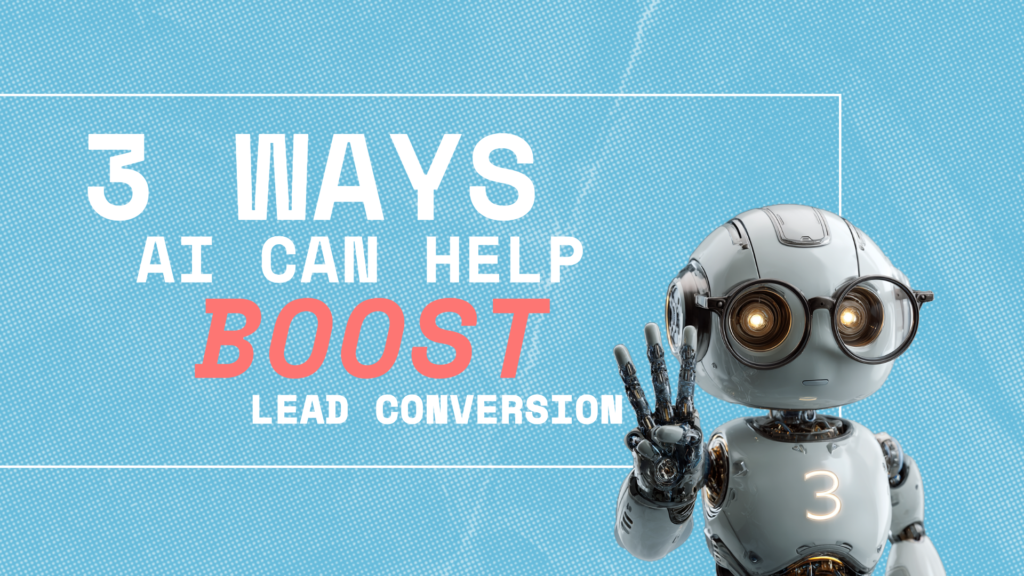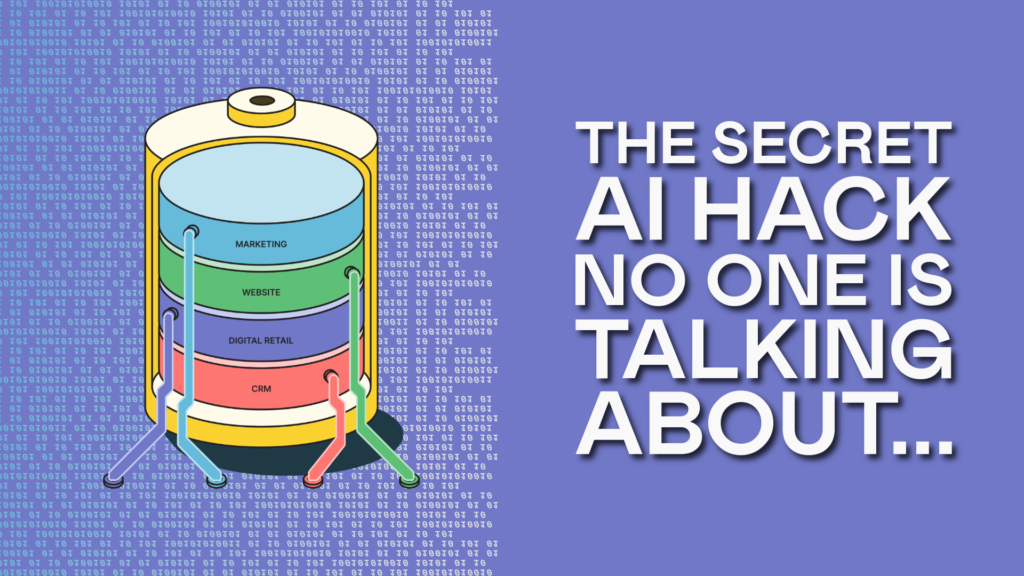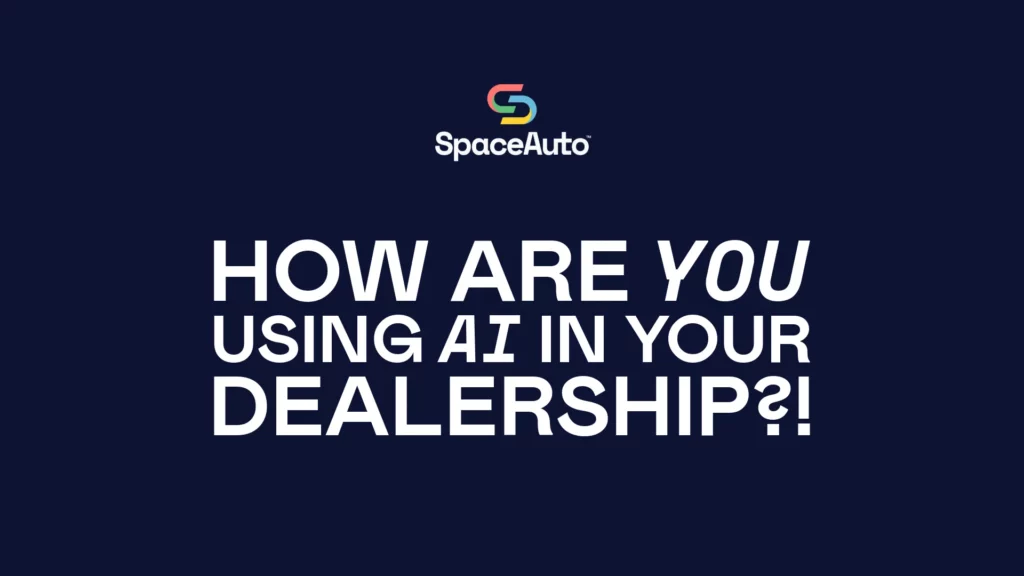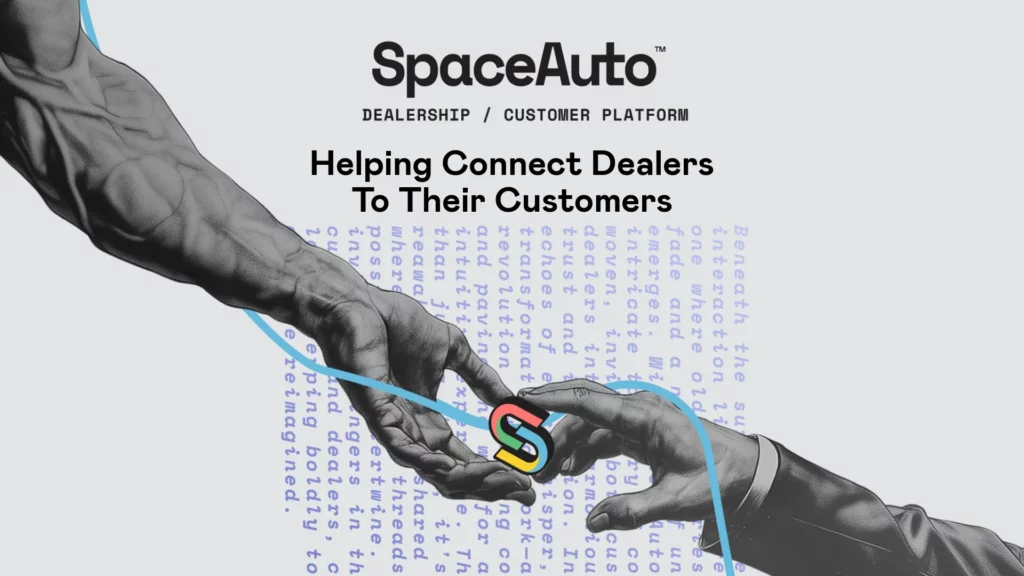
02/18/2025
AI for Dealerships: Delivering a Netflix-Level Personalization Experience
How can AI personalize the car buying experience, like Netflix does for movies?
Artificial Intelligence (AI) can transform car dealerships by analyzing each customer’s preferences and behavior to deliver a Netflix-level personalization in car buying. Just as Netflix’s algorithms suggest content each viewer will love (over 80% of Netflix watch-time comes from its AI-driven recommendations), AI for dealerships uses data to recommend the right car to the right buyer, with personalized financing and timely call-to-action prompts.
This means car shoppers get a tailored experience – seeing vehicles and offers most relevant to them – instead of a one-size-fits-all sales pitch. The result is a faster, more engaging journey that feels custom-made for each customer, leading to higher satisfaction and more sales for the dealership.
The Problem: Traditional Dealership Marketing Lacks Personalization
Most dealerships today still rely on broad-brush marketing tactics. Traditional dealership marketing often targets large segments (or pushes whichever models are popular) rather than tailoring offers to individual shoppers. For example, a lot of ad spend goes to promoting a few top models while many other vehicles get overlooked. In fact, 80% of a typical dealer’s ad budget is spent on just 26% of its inventory – leaving more than half the cars unseen by potential buyers.
This shows how a broad approach neglects huge sales opportunities.
Why does this matter? Because consumers now expect personalization in their shopping experiences. They’re used to Amazon recommending products or Netflix suggesting shows; car buying should feel the same. Today’s shoppers have a strong preference for customized experiences , but a lot of dealerships still send generic email blasts, show the same homepage offers to everyone, and provide static “one-size-fits-all” promotions. This disconnect means many customers don’t see a vehicle or deal that truly speaks to their needs.
The cost of not personalizing is high: lower engagement, missed leads, and lost sales. Broad marketing might bring people in, but it often fails to hit the mark for each customer. To stay competitive – especially as online car shopping grows – dealerships must shift from broad data to hyper-personalized insights. That’s where AI comes in.
How AI Delivers a Netflix-Style Personalized Car Buying Experience
AI can analyze vast amounts of customer data (website clicks, past purchases, search queries, demographics, etc.) and detect patterns that humans would miss. It then uses these insights to customize the shopper’s experience in real time. Here are a few key ways AI personalization mimics Netflix’s approach for car dealerships:
1. Showing “The Right Vehicle to the Right Buyer”
Think of how Netflix suggests just the right show for you – AI can do that with cars. By crunching data on a shopper’s online behavior and profile, AI-powered systems can predict what vehicle a customer is most likely interested in and put it front and center. For example, if a customer has been browsing 7-seater SUVs and has a growing family, the AI might highlight a specific SUV model with a third-row seat and strong safety ratings as their top recommendation.
This isn’t guesswork – AI uses predictive analytics on individual shopper data. It might analyze the customer’s current car (from trade-in records), what similar customers bought, which cars they’ve viewed online, and even engagement history (like clicking on a towing capacity article). With this, it can recommend vehicles that perfectly match that customer’s preferences and needs, much like a curated playlist of cars.
Real-world example: Dealership AI tools can track a customer’s online journey and help sales reps pinpoint exactly which cars to recommend. One report noted that by personalizing interactions based on browsing behavior and vehicle interests, AI helps salespeople suggest vehicles that meet the customer’s desires – increasing the chances of closing the deal faster. Shoppers feel, “Wow, this dealer really gets what I want,” rather than being shown random models.
Importantly, personalization isn’t just about new leads – it also targets existing customers. AI-driven equity mining in the CRM can identify owners in a good position to upgrade (say, their lease is almost up or they have positive equity in their current car). The AI can match those customers with a newer model that fits their profile and even pre-qualify them for an upgrade offer. This way, the right buyer (someone ready to upgrade) sees the right vehicle (a car in stock that fits their upgrade needs) at the right time. It’s a win-win: the customer feels catered to, and the dealership generates a sale that might have been missed with generic marketing.
2. Providing Accurate, Personalized Payments
Another aspect of personalization is speaking to the customer’s financial needs. One major pain point in online car shopping has been getting accurate payment info – buyers often have to fill out long forms or wait until the finance office to know what they might pay per month. AI is changing that by making financing terms part of the personalized shopping experience.
AI can instantly calculate personalized loan or lease estimates for each shopper, without a hard credit pull. How? By leveraging large datasets and even performing soft credit checks in the background. According to experts at Cox Automotive, AI can use just a customer’s name and phone number to perform a soft credit inquiry and compute a near-exact monthly payment across different vehicles – all “down to the penny” accurate – without needing the customer’s SSN upfront. This gives online shoppers real, reliable payment info tailored to their situation.
Why is this important? As more car buying steps move online (it’s expected that about 30% of vehicle sales by 2030 will be half or more completed online ), being able to show shoppers what their personal deal looks like is crucial. AI-driven finance tools analyze the customer’s approximate credit tier, local taxes, current incentives, and the dealer’s lending programs to output a personalized monthly payment and even down payment recommendations.
Case in point: Titus-Will Automotive Group in Washington uses an AI-powered platform to offer precise payment estimates to their online shoppers. The AI factors in the shopper’s credit score band, local fees (tax, title, registration), and available lenders to show a personalized finance quote on each vehicle – no generic “$299/mo for well-qualified buyers” fine print, but a number tailored to that customer. This level of transparency builds trust and helps convert online lookers into buyers, because customers can quickly answer, “Can I afford this car?” with information specific to them.
Having personalized payment info up front also streamlines the sales process. Shoppers come in (or proceed online) with realistic expectations, and there’s less back-and-forth in the F&I office. It’s akin to how Netflix not only shows you a recommended movie but also tells you “because you watched X and Y” – it gives context. In a dealership’s case, showing why a certain payment is shown (“because of your good credit and our current low APR offer”) makes the customer feel confident to move forward.
3. Delivering Conversion-Focused Calls-to-Action
Personalization isn’t just what customers see – it’s also what actions they’re prompted to take. AI can optimize the calls-to-action (CTAs) a shopper encounters, making them more likely to convert. In a traditional site, every visitor might see the same button (“Check Availability” or “Schedule Test Drive”). But with AI, the CTA can adapt to each user and their buying stage.
For example, if the AI detects a first-time visitor who is just browsing, it might show a gentle CTA like “Compare These Models” or a prompt to view a video tour, rather than pushing “Buy Now.” If the AI sees someone has viewed the same car multiple times and calculated payments, it could flash a more direct CTA like “Get Pre-Approved Now” or “Reserve This Car”. The messaging and timing can change based on the user’s behavior. This dynamic personalization is exactly what AI excels at – adjusting CTAs in real time based on user behavior and context.
Picture This: Imagine you’re hesitating on a website and a pop-up offers you a 10% discount for first-time buyers – that’s a personalized CTA in action. It senses you might need an extra nudge. AI can do similarly on a dealership site. For instance, if a shopper seems undecided (scrolling slowly or comparing many cars), the AI might trigger a chat saying “Not sure which vehicle suits you? Ask us, we can help!” or offer a small incentive for a test drive. This kind of tailored prompt addresses the customer’s specific hesitation and nudges them to convert.
AI-driven personalization of CTAs can also factor in who the customer is. A returning customer logging into the service portal might see a CTA to consider an upgrade (since the system knows they’ve owned their car for 5 years), whereas a new website visitor might see a CTA to sign up for price alerts on models they viewed. All of these micro-adjustments add up to a smoother funnel that guides each customer along the path to purchase in the way that’s best for them. By providing the right encouragement at the right moment – be it “Schedule a Test Drive this weekend”, “View Financing Options”, or “Chat with a Virtual Assistant for Questions” – AI ensures that more visitors convert into leads and more leads convert into sales.
4. Always-On, Intelligent Customer Engagement (AI BDC)
In a dealership, a lot of the “personal touch” happens through the Business Development Center (BDC) – the team that follows up on leads, answers calls, and sets appointments. AI is revolutionizing this area with AI BDC tools, which are essentially AI-driven agents (chatbots, voice assistants, etc.) that can handle customer engagement 24/7 in a very personalized way. It’s like giving your dealership an assistant who never sleeps, never forgets a customer, and always knows exactly what to say.
Consider that roughly 40% of dealership leads come in after hours. A human BDC agent can’t work 24/7, but an AI BDC can. Whether a customer inquires at 11 pm via the website chat or texts the dealership on Sunday morning, an AI assistant is there to respond instantly. Importantly, these AI agents can have contextual, human-like conversations – they remember what the customer asked earlier, and they tailor responses accordingly. If someone asks, “Does the 2020 Tahoe have captain’s chairs in the second row?” the AI can answer specifically, and if that customer comes back later, the AI knows what was discussed. This makes the hand-off to a human salesperson seamless when the time comes; the rep can see the chat history and pick up without making the customer repeat themselves.
An AI BDC also ensures no lead falls through the cracks. We all know that missed follow-ups = missed sales. AI can be programmed to monitor every lead interaction in the CRM, and if a potential buyer doesn’t get a reply or a next step, the AI automatically reaches out so the customer isn’t left hanging. It will even re-engage customers who “go silent” by sending a friendly reminder or new offer, which saves deals that otherwise would be lost. This kind of persistence (done in a helpful, personalized tone) can dramatically lift lead conversion rates.
And we can’t forget efficiency: AI BDC solutions scale outreach at a fraction of the cost of hiring more staff. They can simultaneously handle hundreds of chats or texts, something no human team could do at scale. As one dealership technology provider notes, using a human-like AI for routine conversations means your sales team can focus on hot leads and in-store customers, while the AI handles the repetitive queries – all for a much lower cost than adding multiple BDC employees. Essentially, your dealership gains a team member who can talk to unlimited customers at once, never gets tired, and follows the best practices every single time.
In short, AI tools and “AI BDC” virtual agents make sure every customer gets personalized attention whenever they reach out, boosting the chances they’ll set an appointment or make a purchase. It’s the dealership equivalent of having a Netflix that’s ready to serve up the next recommendation no matter when the user hits “play”.

Case Studies: AI-Driven Personalization in Action at Dealerships
Dealerships adopting AI personalization are already seeing remarkable results. Here are a few real unbiased examples of car dealerships using AI tools to boost engagement and sales:
• Bowen Scarff Ford (Washington): By leveraging an AI-powered marketing platform (Fullpath), this dealership unified its customer data and delivered more personalized campaigns. The result? A 47% increase in CRM-recorded sales in just 8 months after activating these AI tools. The AI helped identify the right customers for the right offers, leading to almost half again as many sales through the CRM than before.
• Colonial Volkswagen (Massachusetts): Using advanced identity resolution AI, Colonial VW aggregated tens of thousands of individual shopper profiles from their website and CRM data. With a 360° view of each customer, they optimized their marketing outreach. In only 6 months, sales climbed by 23% because they were targeting customers with vehicles and deals that matched their exact interests. This case shows how deep customer insights powered by AI can directly lift revenue.
• Mountain View Ford (Chattanooga): This dealership added an AI chatbot with ChatGPT integration to their website to assist customers in real time. In three months, the chatbot was a game-changer: it achieved a 50% conversion rate (half of all chat conversations led to a lead or appointment) and ended up generating over 60% of the dealership’s total website leads by itself. The AI was answering questions and guiding shoppers so effectively that it became one of the top lead drivers for the store, showing the power of an AI BDC in action.
• Quirk Chevrolet (New Hampshire): By using AI to activate and analyze their first-party customer data, Quirk Chevy dramatically improved its marketing efficiency. They were able to hyper-target their ads and emails, resulting in a cost per lead of only $14.02 (far lower than industry average) and a better customer experience overall. Basically, they spent less on marketing for each lead while providing more relevant offers – a direct boost to their bottom line and ROI.
• Van Horn Auto Group (Multiple States): Van Horn’s BDC team got a boost from an AI sales agent (through Podium’s AI BDC solution). In just a two-week trial, “Podium’s AI BDC sold 20 cars out of the 41 test drives it scheduled” for Van Horn. That is an astonishing close-rate for test drives, attributable to the AI’s ability to quickly engage leads, get them to come in for a drive, and even follow up to convert them into buyers. This example underlines how an AI assistant can directly generate sales, not just leads, by nurturing customers through the process with personalized communication.
Each of these case studies highlights a different facet of AI-driven personalization – from marketing to web chat to lead follow-up – but they all point to the same outcome: higher conversions and revenue when AI personalization is put to work. These dealerships attracted more leads and turned more of those leads into sales by treating each customer in a unique, tailored way at scale, something only AI tools could accomplish so consistently.
AI Tools and BDC Solutions that Enhance the Buying Experience
So, what kinds of car dealership AI tools can deliver these Netflix-like personalized experiences? There are several categories of AI solutions available to dealerships today:
• AI-Powered Marketing Platforms & Customer Data Platforms (CDPs): These tools aggregate all of a dealership’s data (website visits, CRM contacts, past purchases, etc.) and use AI to segment and target customers with personalized campaigns. For example, platforms like Fullpath unify siloed data sources – CRM, DMS, website behavior, etc. – into one profile for each shopper and then automate highly targeted emails or ads. The AI might find, say, a list of truck owners whose leases end soon and send each of them a tailored offer on a new truck model (with the right financing deal for their credit tier). By ensuring hyper-personalization in marketing and precise audience segmentation, these tools make sure each customer sees content and deals relevant to them.
• AI Chatbots and Virtual Sales Assistants: These are the AI virtual assistants on your website or messaging platforms that interact with customers in real time. They can answer inventory questions, schedule test drives, help with trade-in estimates, and even guide customers through financing pre-approval – all through chat or text, 24/7. The new generation of chatbots is remarkably adept at understanding natural language (thanks to AI models like GPT) and can handle complex questions. As we saw with Mountain View Ford’s case, deploying a chatbot can massively increase lead capture. Similarly, AI chat agents on Facebook Messenger or SMS can instantly reply to inquiries that would otherwise wait hours for a human response. These tools provide the instant gratification and personalized answers that modern consumers expect (much like how a Netflix user expects instant info on a show). And importantly, they never let a potential buyer wait – or slip away to a competitor – because of slow responses.
• AI BDC Solutions (Conversational AI for Lead Follow-Up): Often integrated with the above chatbots or as part of the CRM, these AI BDC agents focus on lead nurturing via email, text, and even phone calls (voice AI). Companies like Conversica, Podium, and DriveCentric offer AI sales assistants that contact leads moments after an inquiry comes in, follow up multiple times, and keep the conversation personalized. They can ask qualification questions (e.g., “Do you have a vehicle to trade in?”), provide information (“The Camry you liked is available in blue and red”), and then seamlessly hand off hot leads to your live salespeople. The benefit is twofold: customers get immediate, tailored engagement, and your staff is freed from chasing cold leads or repetitive tasks. These AI agents boost appointment set rates and ensure even midnight web leads get a prompt, friendly reply by morning . In short, an AI BDC means no lead is ever left unattended, and every inquiry gets the VIP treatment of a quick, personalized response.
• Personalized Digital Retailing Tools: These AI-driven tools focus on the online car buying process. They might include AI finance calculators (like the Cox Automotive example) that personalize payments, or intelligent trade-in appraisers that use market data and the customer’s car details to give a fair, instant trade offer. Some platforms use AI to adjust the online checkout process based on the shopper – for instance, shortening the path for a returning customer or offering an accessory bundle if data shows the customer might want it. The goal is to replicate the in-dealership guidance with AI: if a customer is, say, a first-time buyer, the system might proactively offer a “Finance 101” info section or a recommendation to consider a certified pre-owned car to save money. If another customer has high income (maybe inferred from job info or credit pre-approval), the system might highlight premium trim packages or warranty add-ons that suit their profile. All this is done by AI behind the scenes analyzing the data the customer provides and how they navigate the site.
In essence, from the moment a customer starts researching to the moment they drive off the lot, there is an AI tool or solution at each step that can personalize and streamline the experience. The best results often come when these tools are integrated – for instance, the AI in your marketing platform flags a lead as very interested, the AI BDC agent reaches out immediately, and the AI chatbot on the site is aware of this context when the customer returns. When all these pieces work together, the dealership functions almost like a well-tuned algorithm itself – anticipating customer needs, providing information before they ask, and making the car buying process feel effortless and individually catered.
Higher Conversions, Happier Customers, Greater Revenue
All these AI-driven personalization efforts lead to three big wins for dealerships:
• Higher Conversion Rates: When shoppers get a personalized experience, they are far more likely to take the next step – whether it’s submitting a lead, coming in for a test drive, or clicking the “Buy” button online. The proof is in the numbers: dealerships using AI personalization report significant jumps in lead conversion and sales. (Recall that AI chatbot converting 50% of chats , or the AI BDC selling 20 cars in 2 weeks – those kinds of improvements are game-changing.) Even on a broad scale, a majority of auto dealers agree that AI is a boon; 68% of dealers surveyed said AI has already had a positive impact on their business . More leads + better follow-up = more deals closed, plain and simple.
• Better Customer Experience & Satisfaction: Customers feel more understood and less frustrated. Instead of wading through irrelevant options or waiting hours for answers, they enjoy Netflix-like convenience – the system “knows” what they want and serves it up. Buying a car is a big decision, and AI helps reduce the friction in that process: it speeds up the paperwork and info gathering, and personalizes each interaction. Shoppers get quick answers, see realistic payments, and get offers tailored to them. This leads to happier customers who are likely to not only buy, but also come back for service and future purchases. Personal touches at scale build loyalty. As AI handles the tedious parts, your human staff can focus on truly engaging with customers and building relationships, which is what creates lifelong clients.
• Increased Dealership Revenue and Efficiency: Selling more cars (and related services) obviously drives up revenue. But AI personalization also often lowers the cost of making each sale. Marketing spend is used more efficiently by targeting likely buyers, salespeople waste less time on cold leads, and fewer deals are lost due to slow follow-ups. Even inventory can be managed smarter, reducing holding costs. All of this means a healthier bottom line. Some dealerships in the case studies saw tens of percent increases in sales volume , which over a year translates to huge revenue gains. Others cut their cost-per-lead drastically , meaning higher profitability per sale. And importantly, personalization can boost front-end gross and F&I penetration because the customer is matched with the ideal car and products for them, which they perceive more value in. The dealership isn’t just selling any car – it’s selling the car the data shows the customer is most likely to want and be satisfied with, which often means less discounting to close the deal.
Finally, there’s an intangible but critical benefit: staying competitive in a changing market. Dealerships that harness AI for personalization are positioning themselves as the future of car retail. Customers – especially younger, tech-savvy ones – will gravitate to the buying experiences that feel modern, convenient, and personalized.
Meanwhile, dealers that stick to old methods risk falling behind. As one industry expert put it, “delivering a fast, customized experience is now a necessity, not just a nice-to-have, because customers expect the car-buying process to be as smooth and transparent as their online shopping.”
AI is how dealerships can meet those expectations at scale.

It’s Time to Embrace AI-Powered Personalization
The evidence is clear. From AI BDC solutions that nurture leads around the clock, to car dealership AI tools that tailor every marketing message, AI is the key to delivering a hyper-personalized, Netflix-level experience that today’s car buyers crave. It’s not hype or sci-fi for the future – it’s here now, and it’s driving real results in dealerships across the country.
Personalization is powerful because it puts the customer at the center of everything. When a dealership shows it truly understands each customer – recommending the perfect car, offering transparent pricing, responding instantly with helpful info – it builds trust. And trust sells cars. Dealerships that have adopted AI-driven personalization are seeing more leads, more sales, and more satisfied customers than ever before. They are effectively turning data into delight for shoppers, and shoppers are rewarding them with business.
Insert Shameless Space Auto Plug…
If you’re a dealership decision-maker, now is the time to act. Don’t let your store get left behind using broad-strokes marketing in an era of personalization. Start exploring AI-driven solutions that can enhance your CRM, marketing, and BDC operations. Even small steps – like adding an AI chatbot to your site or using AI to analyze your customer database – can quickly yield results and pay for themselves. As the case studies showed, the ROI can be substantial in both the short and long term.
Imagine a dealership where every customer feels like the offers and cars were hand-picked just for them. That’s the future of automotive retail, and AI is what makes it possible at scale. So take the leap into AI-powered personalization. Transform your dealership into a place where buying a car is as personalized and easy as finding a movie on Netflix – your customers will thank you, and your bottom line will too.
